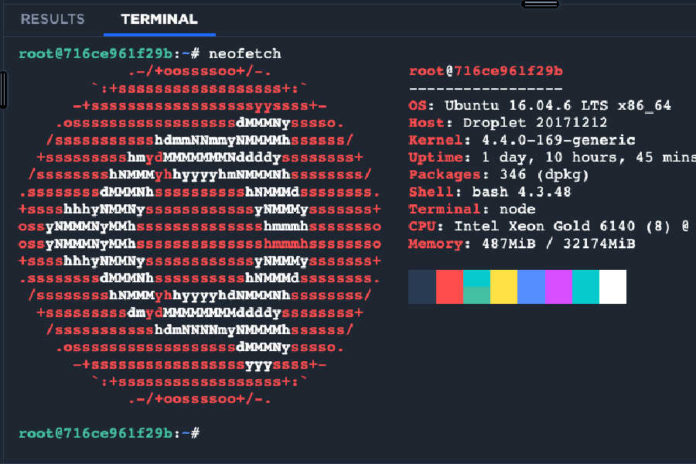
Mark:
Welcome to People Tech, the podcast of the HCM Technology Report. I’m Mark Feffer. My guest today is Tigran Sloyan, the co-founder and CEO of CodeSignal. They’re an OB skills based assessment platform that’s often used in technical hiring. In September, they closed a $50 million Series C round, and that’s just a year after getting $25 million in Series B funding. We’re going to talk about why investors like CodeSignal so much, and how the market’s shaping up. As we continue move through this pandemic, all on this additional People Tech.
Mark:
Tigran, thanks for joining me. Okay, so you just raised a new round of funding, a Series C $50 million, and that came less than a year after your Series B of $25 million. So, what makes you so attractive to investors?
Tigran:
Great question. I think what makes us so attractive to investors is the size of the problem that we’re solving. Being able to identify talent in a more reliable way than the traditional interviews or resumes is just so massive, because every company has it. Every company literally has this problem, and every CEO you ask will tell you that hiring and finding great people and making sure they make the right hires is the number one problem they’ve got.
Tigran:
Yet, the best way that we have traditionally or doing this is we look at someone’s resume and we say, “Do I see key words that I recognize? Do I see a university that I recognize? Do I see a company that I recognize?” Yes? Great, you’re you luck? No? We just throw that into the pile of resumes that we’ve gotten. And then, even if you make it past that resume review, then you go into an interview in which in most cases, humans bring their biases. They bring their preconceived notions of who should be qualified and who’s not. And more often than not, they just show up rationalizing a decision they’ve already made in the first minute or two versus actually evaluating, “Can this person do the job?
Mark:
Do you think to today’s in business environment; the pandemic, the great resignation, political tension, do you think that makes you a more attractive investment?
Tigran:
I think it does in some ways. When it comes to software development, right, the trend of going a digital transformation has been a thing that people have talked about, but traditional businesses have thought of this transformation as something that’s going to take 10 years or 20 years. And all of a sudden, the pandemic has reminded everybody that digital transformation is here and it’s happening right now. And software developers are really the ones that are building the future of that digital transformation. And every company, all of a sudden realized that they need to become a software company today. This is not something that they have five to 10 years to do, which has ultimately accelerated the need for products like ours, where we enable you to hire software developers faster, better, and do it at scale.
Mark:
Now, just to go back to the investment for a second, what do you plan to do with the money?
Tigran:
Yeah, that’s a great question. Well, for first of all, we’re going to continue to grow our amazing team. The team has more than tripled over the last nine months since our Series B. We’re planning to do another triple because demand from our customers is rising at a faster pace than we can hire amazing people, but this investment is definitely going to help accelerate that.
Tigran:
But all also continuing to invest in innovating in this space, because being able to automate interviews is such a difficult technical challenge. Because, look, humans are not great interviewers, but we’re good at certain things, right? We’re good at understanding nuances, we’re good at understanding when somebody is maybe having a difficult time at the moment and you need to give them the benefit of the doubt. Not even talking about being able to measure for potential, right? The ability to understand not just, “How good are you today?” But, “How good are you going to be a year from now two years from now, three years from now?” Because that is what a company is really interested in, right?
Tigran:
When I’m hiring you is one thing to know how qualified you are today, it’s another thing to get an insight into, “How fast have you been growing that I can start projecting how good are you going to be a year or two from now?” So, there is so much potential to actually grow and innovate in this space being able to more aggress invest into these kinds of possibilities and not just looking lix months to a year ahead, but three years, four years, maybe 10 years ahead, is the true optionality that the new investment gives us.
Mark:
Okay. Now, in this market, given business conditions and such, what’s working in your favor as your build?
Tigran:
In this market, what’s working in our favor… I think that the thing that’s really working in our favor is the rise of remote hiring because the… Actually not the rise, I would say the acceleration, because remote hiring has been growing very steadily over the last few years. But all of a sudden, even those who were die hard, “Remote hiring never works, you’ve got to be in the office,” were like, “Okay, we’re forced to do this, and it was fine.”
Tigran:
All of a sudden everybody’s far more accepting of the notion that remote hiring can’t work, which means all of a sudden the talent roles have increased. You can hire from anywhere. You’re no longer just looking in a one geographic area. But with that comes an increase in noise. Because now, the number of candidates and options that you can consider is exponentially higher, and doing it through resume reviews and manual interviews becomes impractical, and you start missing the pedigree that you’ve grown so accustomed to.
Tigran:
Because guess what, if you’re only hiring in the bay area, there is a lot more people with resumes that say Stanford, that say MIT, that say Google or Uber or another startup that you recognize. As soon as you start hiring from the Midwest, a lot of more resumes start looking just like any other resume. You cannot just go off a pedigree to say, “This is what our hiring criteria is going to be,” which is a great thing for the industry, but it’s also a driving function for our company, because more and more customers start coming to us and saying, “We need it better way.”
Mark:
Let me just flip the question and ask, what’s working against you?
Tigran:
Working against us is that it’s a very aggressive bull market. Everybody’s hiring. Everybody is competing for great talent. There’s a lot of volatility over all in the market, and something that can potentially introduce instability as well. But overall, it’s a very competitive market to hiring. Good news is that we know we specialize in hiring, and we specialize in interviewing, we specialize in identifying great people. So, that works well for us, but it’s still a high competitive market. There’s new, bigger flash, bigger rounds raised every day, there’s a new IPO every other day. So, it’s a highly, highly competitive market to be growing a hyper growth company.
Mark:
Tigran, thanks very much for taking the time. It was great to meet you and talk to you.
Tigran:
Likewise, appreciate it.
Mark:
My guest today has been Tigran Sloyan, the co-founder and CEO of CodeSignal. And this has been People Tech, the podcast of the HCM Technology Report. We’re a publication of recruiting data. We’re also a part of Evergreen Podcasts. To see all of their programs visit www.EvergreenPodcasts.com. And to keep up with HR Technology, visit the HCM Technology Report every day. We’re the most trusted source of news in the HR tech industry. Find us at www.HCMTechnologyReport.com. I’m Mark Feffer.
Image: CodeSignal














